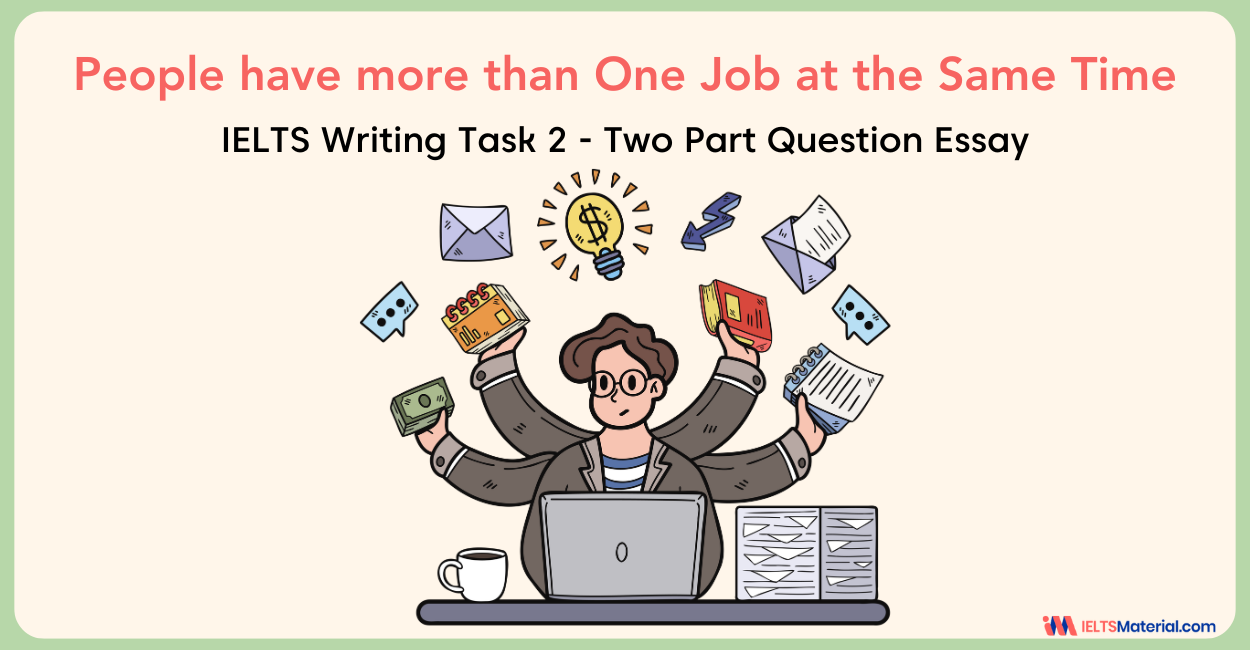IELTS Writing Task 2: Opinion Essays Explained
Struggling with IELTS Writing Task 2 opinion essays? This guide breaks down the structure, key tips, and common mistakes, helping you write confidently and score higher!
Table of Contents

Try AI Essay Checker for Instant Band Score
If you're preparing for IELTS Writing Task 2, you'll likely encounter the opinion essay. This essay type requires you to present a clear viewpoint on a specific topic, supporting your stance with relevant examples and reasons. Understanding the structure and strategies for opinion essays is crucial for achieving a higher IELTS band score.
What is an IELTS Writing Task 2 Opinion Essay?
IELTS opinion essays ask you to agree or disagree with a specific idea. You’ll choose one side to support and develop your argument. You have 40 minutes to write at least 250 words on the given topic. In the IELTS Writing Task 2, an opinion essay asks you to state your opinion on a given topic. You’ll be required to answer a question that usually begins with phrases like:
- "Do you agree or disagree?"
- "To what extent do you agree or disagree?"
This essay type tests your ability to articulate and defend your opinion, so clear, logical thinking is essential.
Structure of an IELTS Opinion Essay
The structure of an opinion essay in IELTS Writing Task 2 should be clear and easy to follow. A well-organized essay is essential for achieving a high band score. The recommended structure is as follows:
A well-organized opinion essay typically follows this structure:
1. Introduction
- Introducing the topic.
- Clearly state your opinion (agree/disagree or partially agree).
For Example Topic: Some people believe that using public transport is the best way to reduce traffic congestion. Do you agree or disagree?
| Introduction: Traffic congestion is a major issue in cities around the world, and some argue that public transportation is the most effective solution. I completely agree with this view, as public transport not only reduces the number of vehicles on the road but also benefits the environment. |
2. Body Paragraph 1
- Present your first reason supporting your opinion.
- Provide examples or evidence to back up your point.
| Example: First Argument Supporting Your Opinion
One of the main reasons public transport is an effective solution for traffic congestion is that it significantly reduces the number of private vehicles on the road. For instance, a single bus can carry as many passengers as 40-50 cars, which would drastically reduce the volume of traffic if more people used buses instead of driving. Cities like Singapore and Tokyo, which have well-developed public transport systems, have seen a notable decrease in congestion levels. This demonstrates that investing in and encouraging public transport can directly alleviate traffic issues. |
3. Body Paragraph 2
- Discuss your second reason or argument.
- Again, support it with relevant examples.
| Example: Second Argument Supporting Your Opinion
Another key advantage of public transport is its positive impact on the environment. Fewer private vehicles on the road means reduced carbon emissions, which helps in combating air pollution and climate change. According to studies, buses and trains produce significantly less CO2 per passenger compared to cars. For instance, electric trains are a sustainable alternative, offering a cleaner mode of transport. Promoting public transportation not only helps manage traffic but also contributes to a healthier environment for future generations. |
4. Conclusion
- Restate your opinion in different words.
- Summarize the main points of your argument.
|
Conclusion: In conclusion, public transportation offers an effective solution to traffic congestion by reducing the number of vehicles on the road and lowering carbon emissions. Investing in public transport systems is a practical and sustainable way to tackle both traffic and environmental concerns in modern cities. |
Struggling to Crack the IELTS opinion essays? Our 8+ band trainers have got you! Sign up for a FREE demo now!
Tips for Writing a High-Scoring IELTS Opinion Essay
- State Your Opinion Clearly: Avoid ambiguity in your introduction. Your stance must be clear from the start.
- Use Cohesive Devices: Words like "Firstly," "On the other hand," and "In conclusion" can help your essay flow smoothly.
- Support Your Points: Always back up your opinion with relevant examples. These can be personal, global, or based on common knowledge.
- Maintain a Formal Tone: Since IELTS is an academic test, use formal language and avoid slang or overly casual phrases.
Common Mistakes to Avoid For IELTS Opinion Essay
- Not Giving a Clear Opinion: Some test-takers fail to state their opinion clearly in the introduction and conclusion, leading to confusion.
- Weak Examples: Vague or irrelevant examples weaken your argument. Make sure your examples are specific and relatable to the topic.
- Word Count Issues: Stay within the 250-word minimum, but don't go overboard. Keep your writing concise and to the point.
IELTS Opinion Essay Sample
|
Do you agree or disagree with the statement that technology is making our lives easier? Introduction Body Paragraph 1 Body Paragraph 2 Conclusion In conclusion, technology has undoubtedly made life easier by revolutionizing communication and increasing productivity. As it continues to evolve, its impact will likely grow, further enhancing convenience in our lives. |
Writing an effective opinion essay in IELTS Writing Task 2 is crucial for achieving a high band score. By understanding the structure, expressing a clear opinion, and using logical arguments supported by examples, you can greatly improve your chances of success. Practice writing essays on a variety of topics and follow the tips outlined in this guide to enhance your writing skills. With consistent practice and careful attention to detail, you’ll be well-prepared to tackle the opinion essay with confidence.
Looking for opinion essay topics & questions for 2024? Check them in our IELTS online classes & sharpen your writing skills!
Here are the 5 Examples for the Opinion Essay Topics IELTS:
Practice IELTS Writing Task 2 based on Essay types

Start Preparing for IELTS: Get Your 10-Day Study Plan Today!
Recent Articles


Prity Mallick

Kasturika Samanta

Kasturika Samanta




Post your Comments